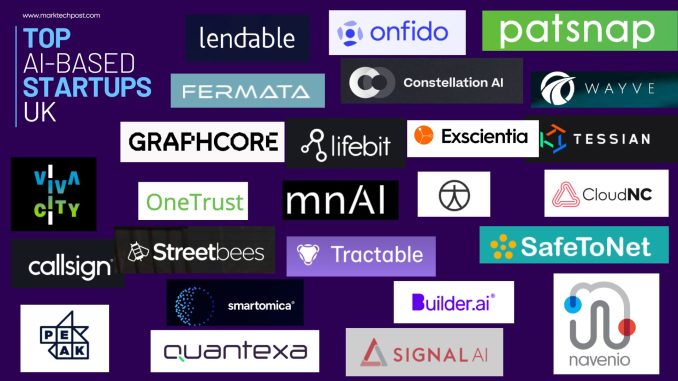
In today’s rapidly evolving technological landscape, startups continue to be the driving force behind innovation, pushing boundaries and reshaping industries in profound ways. These emerging companies, often born from fresh ideas and bold visions, are challenging traditional business models and delivering solutions that address some of the world’s most pressing challenges. From artificial intelligence and biotechnology to clean energy and fintech, tech startups are revolutionizing how we live, work, and interact, offering glimpses of a future defined by creativity and disruption.
One of the most compelling aspects of tech startups is their ability to scale innovation quickly. Unlike established corporations weighed down by legacy systems and processes, startups operate with agility, allowing them to iterate on ideas, test new approaches, and pivot when necessary. This adaptability has led to breakthroughs that have transformed industries, such as the rise of AI-powered tools that enhance decision-making across sectors like healthcare, finance, and logistics.
Consider the advancements in healthcare technology driven by startups focusing on personalized medicine and diagnostics. By leveraging machine learning algorithms and vast datasets, these companies are enabling doctors to tailor treatments to individual patients’ genetic profiles, vastly improving outcomes and reducing side effects. For example, startups developing wearable health devices have made real-time monitoring of chronic conditions more accessible, empowering patients to manage their health proactively rather than reactively. This kind of innovation is not only saving lives but also reducing healthcare costs by preventing hospitalizations and enabling early interventions.
Beyond healthcare, the energy sector is witnessing a revolution fueled by startups focused on sustainability. As climate concerns become ever more urgent, these companies are developing cutting-edge technologies in renewable energy generation, energy storage, and smart grid management. Their innovations are essential for accelerating the transition to a low-carbon economy. Startups working on next-generation batteries, for instance, are addressing one of the key limitations of renewable energy—intermittency—by improving storage capacity and efficiency. These advances make solar and wind power more reliable, bringing us closer to a future where clean energy is not just an alternative but the norm.
Fintech startups are another major driver of disruption, transforming how individuals and businesses manage money. By harnessing blockchain, artificial intelligence, and mobile technology, these startups are democratizing access to financial services and improving transparency. They are challenging traditional banks with platforms that enable faster, cheaper cross-border payments, automated investment advice, and real-time fraud detection. What makes this revolution particularly striking is how it extends financial inclusion, bringing underserved populations into the global economy through mobile banking solutions that require nothing more than a smartphone.
In the realm of artificial intelligence and machine learning, startups are creating tools that not only automate routine tasks but also augment human creativity and insight. From natural language processing that powers smarter virtual assistants to computer vision systems enabling autonomous vehicles, these technologies are reshaping the very fabric of how we interact with machines. Startups focusing on AI ethics and explainability are also ensuring that these powerful tools are developed responsibly, addressing concerns about bias and transparency.
One particularly fascinating trend is the rise of startups in the metaverse and augmented reality spaces. These companies are building immersive digital worlds that blend entertainment, social interaction, and commerce in unprecedented ways. By combining advances in 3D modeling, real-time rendering, and blockchain-based digital ownership, they are creating new forms of experience that could redefine social media and e-commerce. For example, virtual fashion shows and digital art auctions hosted in these environments are not only opening new revenue streams but also fostering communities that transcend physical boundaries.
The impact of these startups is amplified by their global reach. Unlike earlier decades, when innovation hubs were largely concentrated in Silicon Valley and a few other tech centers, today’s tech startups emerge from diverse geographies, tapping into local talent and addressing unique market needs. This globalization of innovation accelerates the diffusion of technology and ideas, making breakthroughs accessible to broader populations and catalyzing economic growth in regions previously left on the sidelines.
Of course, with rapid innovation comes challenges. Startups face intense competition, uncertain regulatory environments, and the constant pressure to balance growth with sustainable business practices. Moreover, as technologies become more complex and integrated into daily life, ethical considerations about privacy, security, and societal impact grow ever more important. Successful startups are those that not only deliver groundbreaking technology but also build trust with users and stakeholders.
Looking ahead, the startups that will revolutionize the world are likely those that harness emerging technologies in ways that solve real problems and create value for people. Their ability to foster collaboration across disciplines and borders, coupled with an entrepreneurial spirit, positions them as catalysts for positive change. Whether it’s by advancing medical research, accelerating the shift to clean energy, democratizing finance, or crafting new digital realities, these startups embody the dynamic intersection of technology and human ambition.
In essence, the story of tech startups is one of relentless innovation fueled by vision and resilience. They remind us that disruption is not just about technology itself, but about reimagining what is possible—reshaping industries, societies, and ultimately, the world. As they continue to evolve, these companies offer a powerful testament to the enduring potential of human creativity when combined with technological prowess. For business leaders, investors, and consumers alike, paying attention to these startups is not just about spotting the next big trend; it’s about understanding the forces that will shape the future of our global economy and culture.